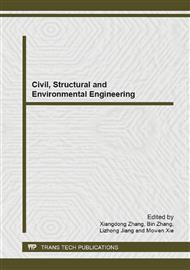p.3199
p.3204
p.3208
p.3212
p.3218
p.3225
p.3229
p.3233
p.3237
Research on the System of Private Scientific and Technological Enterprise's Software Developers’ Survival State Evaluation - Based on Empirical Survey of Five Cities
Abstract:
The system of the private scientific and technological enterprise software developers survival state evaluation is relatively insufficient, with only a few records. For this reason, the paper sets up a dynamic model of private scientific and technological enterprise's software developers survival state evaluation by combining the career cycle with the static model of survival state evaluation, and investigates and evaluates 407 software developers of the private scientific and technological enterprise from five cities. Results show that, the evaluation model is more operational and practicable.
Info:
Periodical:
Pages:
3218-3224
Citation:
Online since:
November 2013
Authors:
Price:
Сopyright:
© 2014 Trans Tech Publications Ltd. All Rights Reserved
Share:
Citation:


